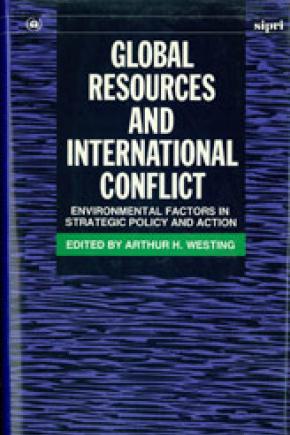Global Resources and International Conflict: Environmental Factors in Strategic Policy and Action
The contributors to this study single out for detailed analysis various key resources—oil, natural gas, and other vital minerals, fresh waters, ocean fisheries, and food crops—which are likely to lead to interstate disputes and conflicts. The effect of differential population growth on the actual and perceived availability of resources and on the resultant international behaviour of states is also examined. One of the major challenges in the world today is how to ensure access to global resources in a way that will avoid international conflict. In recognition of this challenge, the study concludes with an expanded, environmentally based concept of international security.
1. Global resources and international conflict: On overview
Arthur H. Westing
2. Oil as a factor in strategic policy and action: Past and present
Alexander A. Arbatov
3. Oil and natural gas as factors in strategic policy and action: A long-term view
Erik Solem and Anthony F. G. Scanlan
4. Minerals as a factor in strategic policy and action
Helge Hveem
5. Fresh waters as a factor in strategic policy and action
Malin Falkenmark
6. Ocean fisheries as a factor in strategic policy and action
Susan B. Peterson and John M. Teal
7. Food crops as a factor in strategic policy and action
Peter Wallensteen
8. Human population as a factor in strategic policy and action
Marcel Leroy
9. An expanded concept of international security
Arthur H. Westing
Appendix 1. Global resources and international conflict
Arthur H. Westing
Appendix 2. Wars and skirmishes involving natural resources: A selection from the twentieth century
Arthur H. Westing
Appendix 3. Spitsbergen Treaty of 1920
Appendix 4. Antarctic Treaty of 1959
Appendix 5. Outer Space Treaty of 1967
Appendix 6. Law of the Sea Convention of 1982
Appendix 7. Moon Agreement of 1979

